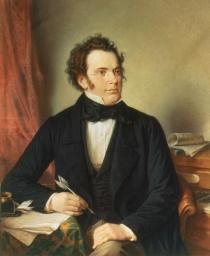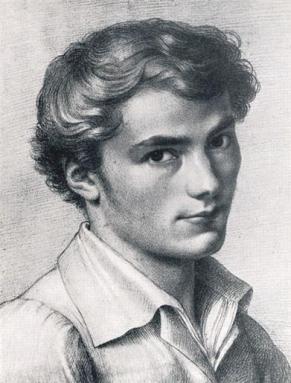Sustainable Palm Oil? No Thanks!
 Wednesday 6th March, a calm day, thin quilting of grey cloud over the whole sky, balmy temperature after weeks of that icy east wind. My sky-blue crocuses have joined the gold ones, in a fine display, and there are a few sweet violets hiding by the wall. Not so much bird action in the garden this week, or maybe I've spent less time staring out of the window? No spawn action as yet, but it's due soon. Today for the first time I encountered a fine young frog sitting on the rim of the little pool. Didn't look much like a male or female in reproductive trim however.
Wednesday 6th March, a calm day, thin quilting of grey cloud over the whole sky, balmy temperature after weeks of that icy east wind. My sky-blue crocuses have joined the gold ones, in a fine display, and there are a few sweet violets hiding by the wall. Not so much bird action in the garden this week, or maybe I've spent less time staring out of the window? No spawn action as yet, but it's due soon. Today for the first time I encountered a fine young frog sitting on the rim of the little pool. Didn't look much like a male or female in reproductive trim however. Sustainable Palm Oil? It depends when you start measuring. The plantation should be easy to sustain, it's such a simple monoculture, but the rainforest that was there before will not be coming back, nor will the orang-utans. I've been working on my Palm Oil dependency for a while, concern triggered by a lasting attachment to the living world of Malaysia and Indonesia, finally ran up against the wall when I looked for Palm Oil free bar soap. It should be easy, shouldn't it? Ethical Products are all over the place. Does The Body Shop have a palm oil free product? No. Faith In Nature? No. Our neighbourhood artisan soapmakers, Bomb Cosmetics of Bournemouth No. Now, if you live in Australia or New Zealand, and you feel like ditching Palm Oil from your bathroom, you're fine. They've seen the damage, I suppose. Any amount of suppliers. What's the ethical consumer in the UK to do? Accept it just can't be done? Not necessarily. The highly visible and popular ethical brand Lush cosmetics has gone completely palm-oil free. So why don't the others? Could hazard a guess, but anyway, here's a couple of links for the curious:
http://en.wikipedia.org/wiki/Roundtable_on_Sustainable_Palm_Oil
http://understory.ran.org/2012/11/20/ran-issues-statement-in-response-to-false-palm-oil-claims-by-cargill/
ww.saynotopalmoil.com/contact.php
http://biz.thestar.com.my/news/story.asp?file=/2013/3/6/business/20130306081358&sec=business
I think the "Sustainable" Palm Oil scam is a scam, about the same level of trustworthy as the "Farm Assured" or (worse) "100%British" label, on supermarket meat. Can't argue with the argument that it's better than nothing, but I happen to want better than that. Sadly, I don't like Lush. When I walk into their very colourful shops I immediately taste the product, it's in my mouth. Not a good feeling. So it's back to Oliva (the only palm oil free soap I could find on the shelves in our local ethical giant Infinity Foods) until further notice.
Watching
Two (South) Korean movies in the last week. My son Gabriel tells me the Korean domestic movie industry is huge, and their mainstays are sugary family sagas and comedies; which is a relief to know. Both the ones I saw, however, were the usual thing, savagely violent, bizarre tales about tragically dysfunctional characters. The first was Breathless; Yang Ik-june, one of my movies-recorded-off-the-tv. A small-time gangster, actually debt collector, who dispenses with the mean phone calls and simply comes round and beats the living sh*t out of the unfortunate defaulters (which seems to work!), his horribly dysfunctional family past, and his unlikely friendship with a young girl, who comes from exactly the same background, who pretends she's bourgeois when she meets him, just to give herself a break. Wonderfully acted, intensely engaging, poetic but somewhat grim to look at. The other one was Stoker. I wouldn't say don't go to see Stoker, I definitely would not say it's a waste of your money, it's very stylish, as hackneyed American gothic goes, but if you're expecting a hip, exciting remake of Shadow Of A Doubt you're going to be disappointed, and if you know Park Chan-wook's work from Oldboy, Sympathy for Mr Vengeance or Sympathy for Lady Vengeance prepare to be underwhelmed. Engagement with the characters is set at zero, displays of emotion completely absent. Oh, wait. The bad guy, Matthew Goode channeling David Byrne in his Psychokiller suit, does about three different weird smirks!
Reading
Otter Country, Miriam Darlington. Lovely, engrossing. I bought this for Peter for his birthday. (Actually I ended up showering him with books, as I was ordering them off the internet to start with, and got scared when the first choices didn't turn up for a while). It's all about otters, Wales and England, and Scotland too of course. I cannot tell a lie, there's a lot of plashing going on here (very few voles, sadly),but also plenty of cold feet. It's great. Nature writing is allowed to be lyrical, and you just can't beat otters. I wouldn't be surprised if this ends up a bestseller.
Looking forward to reading Tubes, next. Which is the book that was slow to arrive. I assumed, given the writer's Wired credentials, that this would be gonzo journalism. Apparently it isn't, but still (or therefore) is highly reccommended.


 you (in the absence of antibiotics), I don't see any mystery, and you could say he got off lightly. The sublime, unbearable sadness of his late and greatest music, the intense poignancy in the happiest, is also held by some to be a puzzle, since what, in his uneventful, modest, lower-middle-class biography prepares one for such intensity? Well, I don't know. He knew his own worth (and he was dead right). He knew he'd contracted a shameful, hideous disease that was going to kill him by inches; that all his hopes were blighted, his chances of love and happiness destroyed. He "lived with death as a constant companion for five years", and came to terms with this dark angel, faithful friend, in the language of a composer of genius. What does his class background, and failure to play before the Crowned Heads of Europe have to do with it?
you (in the absence of antibiotics), I don't see any mystery, and you could say he got off lightly. The sublime, unbearable sadness of his late and greatest music, the intense poignancy in the happiest, is also held by some to be a puzzle, since what, in his uneventful, modest, lower-middle-class biography prepares one for such intensity? Well, I don't know. He knew his own worth (and he was dead right). He knew he'd contracted a shameful, hideous disease that was going to kill him by inches; that all his hopes were blighted, his chances of love and happiness destroyed. He "lived with death as a constant companion for five years", and came to terms with this dark angel, faithful friend, in the language of a composer of genius. What does his class background, and failure to play before the Crowned Heads of Europe have to do with it? Tuesday 14th June, clear blue morning after a wet (good!) stubbornly cold (have they really broken the Gulf Stream? #file under fantasists, be careful what you wish for) and ominously windy weekend... a handful of swifts hawking high over the valley.
Tuesday 14th June, clear blue morning after a wet (good!) stubbornly cold (have they really broken the Gulf Stream? #file under fantasists, be careful what you wish for) and ominously windy weekend... a handful of swifts hawking high over the valley.  Tuesday 2nd February, no frost, grey rain.
Tuesday 2nd February, no frost, grey rain.